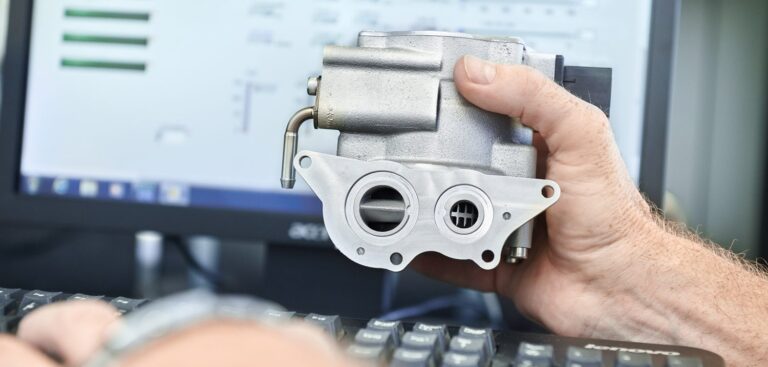As part of the FC Komp funding project run by the German government, Pierburg, a member of the Rheinmetall Group, has announced it is involved in the development of a highly integrated, high-power fuel cell driveline.
Other partners in this project of the Federal Ministry of Transport and Digital Infrastructure and the German National Organization for Hydrogen and Fuel Cell Technology (NOW) are the car manufacturer BMW and the University of Siegen.
The Neuss-based automotive supplier says it is contributing a hydrogen recirculation blower, which is used to feed the hydrogen not consumed during the reaction in the fuel cell back into the stack. The blower thus increases the fuel cell’s efficiency and extends its service life. Moreover, by distributing the hydrogen homogeneously in the cell, it enables improved cold-start response. Pierburg says the blower was developed in both a low- and high-voltage version, up to 800V.
The project aims to reduce the high manufacturing costs of FC systems by using low-cost, space-saving components and incorporating a high level of integration. The ultimate goal, says Pierburg, is for an FC to be able to replace a combustion engine in the front of passenger cars without detrimental effects on weight or installation space.
“We are noticing increasing interest in the market from almost all manufacturers,” noted Dr Michael Becker, director for advanced engineering at Pierburg and coordinator of the company’s fuel cell activities. “This applies, on the one hand, to larger passenger cars and SUVs, and increasingly to commercial vehicles, buses and stationary applications.”


